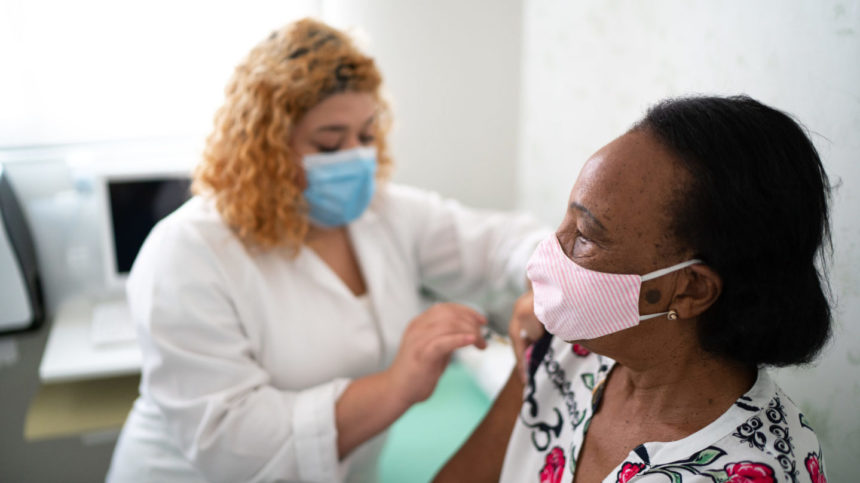
A new study exploring how well the updated COVID-19 vaccines worked in people over the age of 60 had some promising results.
According to the study that came out Jan. 4 in Eurosurveillance, the COVID-19 shot was 70.7% effective against hospitalization and 73.3% effective against being admitted to an intensive care unit (ICU) in fall and early winter 2023. The data showed that there’s a high effectiveness against hospitalization and ICU admission in the first two months of getting the vaccine.
Data came from 2,050 people in the Netherlands. Of them, 14.4% received the COVID-19 vaccine last year. The effectiveness is higher than the two-strain vaccine that was available from October to December of 2022, which was 64% effective against hospitalization for people 60 to 79 years old.
“However, a direct comparison between these seasonal estimates could be confounded by the fact that the 2022 autumn campaign was closer in time to the previous campaign in spring 2022,” the researchers wrote.
The authors said that getting a vaccine seasonally is a good step to lower the burden of COVID-19 in the winter. Of course, vaccine effectiveness wears off after people get the vaccine, as has been the case with previous vaccination campaigns in Europe, the authors said.
“An increase in uptake of the seasonal vaccine could further enhance its public health benefit,” the authors wrote.
The news comes as a separate group of researchers tried to find out why vaccines don’t always work as well in older adults. The study, released Jan 5 in Nature, compared characteristics of 39 people before and after they got a pneumonia shot. When the investigators evaluated bloodwork, they found that levels of CD16+ natural killer (NK) cells were tied to responses to Prevnar (PCV13). A set of genes predicted how people responded to Pneumovax (PPSV23).
“Understanding who will respond strongly to which vaccine will provide us opportunities to stratify the population for improved vaccine efficacy at the population level, as well as understanding whether we can modulate the immune characteristics of individuals prior to vaccination to improve outcomes at the individual level,” Duygu Ucar, PhD, a researcher from The Jackson Laboratory, which has locations in Maine and Connecticut, said in a statement.





